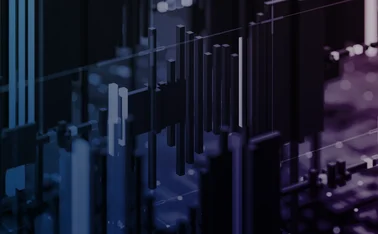
Podcast: fixing the gaps in fintech laws
Fintech is reshaping the financial system, but laws are not adapting so fast, say IMF lawyers

New technology is changing how value is transferred in the financial system and even the structure of financial firms. The law now needs to catch up, say José Garrido and Juan Sebastián Viancha Trujillo in a new Central Banking podcast.
The legal specialists with the International Monetary Fund say organisations including central banks need to work together on a new “legal agenda” that can accommodate fintech.
“At key points in history, for instance the Industrial Revolution, changes in technology and the law have reinforced each other,” says Garrido. “We believe we could be living in a similar moment now.”
In a paper with Yan Liu and Joseph Sommer, Garrido and Viancha set out four key principles to guide these changes. There should be legal certainty to protect all participants in the financial system; the law must be neutral on technology, and not favour any one kind of fintech; interventions should be targeted; and authorities need to work together to align laws across borders.
Viancha notes how many of the new technologies are connected, while the rise of fintech is shifting financial products onto new “rails”. An example is the tokenisation of securities, raising the key question of how these products might fit with central bank market operations.
“Right now we have the technology but we are not sure what the legal effects are,” adds Garrido.
As well as changes in financial products, the rise of fintech is leading to the emergence of new firms. The paper highlights the example of “decentralised autonomous organisations”. The use of smart contracts can create an entire business operating on the basis of computer code. But the authors note that in one case in 2017, the code was hacked, “causing substantial losses”.
Viancha says new entities and product types represent an “enormous challenge” for regulators and supervisors. Supervisors are likely to have to scrutinise code and algorithms, as well as a firm’s more traditional accounts. Without legal certainty, the job will be even harder.
Given these issues, Garrido and Viancha urge central banks to act now. “Central banks should definitely be involved in shaping this agenda, because it affects the whole economy,” says Garrido.
The paper is available in the IMF eLibrary here.
Index
00:50 Background to the research
06:10 Impact on market operations
14:00 What should central banks do?
18:25 Future steps
Only users who have a paid subscription or are part of a corporate subscription are able to print or copy content.
To access these options, along with all other subscription benefits, please contact info@centralbanking.com or view our subscription options here: www.centralbanking.com/subscriptions
You are currently unable to print this content. Please contact info@centralbanking.com to find out more.
You are currently unable to copy this content. Please contact info@centralbanking.com to find out more.
Copyright Infopro Digital Limited. All rights reserved.
As outlined in our terms and conditions, https://www.infopro-digital.com/terms-and-conditions/subscriptions/ (point 2.4), printing is limited to a single copy.
If you would like to purchase additional rights please email info@centralbanking.com
Copyright Infopro Digital Limited. All rights reserved.
You may share this content using our article tools. As outlined in our terms and conditions, https://www.infopro-digital.com/terms-and-conditions/subscriptions/ (clause 2.4), an Authorised User may only make one copy of the materials for their own personal use. You must also comply with the restrictions in clause 2.5.
If you would like to purchase additional rights please email info@centralbanking.com



